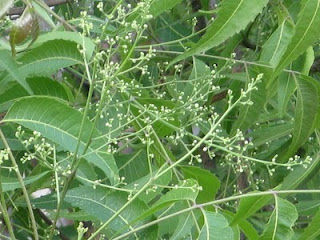More cattle means the farmers need cattle feed, which is in short supply and highly priced nowadays because Jowar / Sorghum cultivation has taken a backseat since the last few decades... Whatever Sorghum is being cultivated are being exported to the Western Countries for their large cattle houses, while Indian farmers struggle to pay a high price for cattle feed. The third REVOLUTION that is the need of the hour is the increasing JOWAR / SORGHUM CULTIVATION in the nation. Sorghum is highly nutritious with great health benefits... and the plants are good cattle feed... increasing Sorghum cultivation is the need of the hour, so as to supplement well with cattle feed for the increasing cattle bank. But the farmers have been lured and misguided by the nation’s government policies to grow cash crops... Yes, a nation needs cash crops but at what cost? At the cost of farmers succumbing to suicide year after year? The policies of the governemnt is more corporate friendly rather than being farmers’ friendly.
I had interacted with farmers from villages in Rajasthan in Jaipur district last year... one farmer revealed an amazing hard-to-believe facts: The State of Rajasthan as everyone knows is a dry state with minimum rainfall. Drought is very common with farmers in Rajasthan and they usually have only one crop season because of scanty rainfall. In 2010 – 11, Rajasthan received good rainfall and farmers were very happy because they had two crop season and almost every farmer had a bountiful of crops... happy faces all around, crops were being harvested under supervision of the old guards... it was a lovely sight ! I even shared some lovely daal-batti at one of the farmer’s house, when he invited us in joy... it was al-fresco in the village with moonlit and curious village folks gathered all around us. The farmer revealed when there was acute drought situation in Rajasthan for three years, saving the cattle became such a crisis because cattle feed was not available in the state. But the Rajasthan farmers are known warriors, who never give up so easily. Villagers gathered together and whatever gold the women had were gathered and sold to buy cattle feed at a high price from Punjab and Haryana, to save the cattle. Even now, when I am writing this, my hair has raised on its own for the sheer sacrifice the farmers did to save their cattle...
The farmers were shocked and asked me – ‘why do farmers in Vidarbha succumbed to suicide? They have good rainfall unlike us.’ Truly so, the farmers revealed that for six months, they migrate to cities to work as labourers to earn their livelihood, ‘but we don’t commit suicide.’ I had no answer to their question... it also showed that at extreme conditions, Indian farmers have adapted their geographical state without compromising on hard labour.The reason why I shared this particular experience here is, that for farmers, their land and cattle are God like... so how can farmers today are losing their Gods on their own to adapt modern comforts? I am not against comforts by any means... every farmer is entitled to enjoy life of comforts after a hard day’s work in the fields year after year.
Here I also wish to share with one and all, what one can achieve if one is determined and willing to work hard... a wonderful success of 32 Women Farmers of Pastapur Village in Medak district of Andhra Pradesh (I read about them in newspapers), who were guided by Deccan Development Society. Their organisation is named SANGHAM... These women took reigns from their husbands to start cultivation of Sorghum when they faced with drought for couple of years... they worked hard to reap the benefits and with the success of their respective farms productivity, they started dairy farming simultaneously. Today, they are running successfully dairy farming and are exporting Sorghum to US and is one of the leading exporter of Sorghum in the nation. The village has become prosperous because of the hard labour of these 32 women, who are controlling and supervising both the units without any support from their male counter parts. Women power can achieve great feats and these village women showed it to the world.
The myth that Organic Farming produce are pest-free produce is also misleading... because even Organic Farming faces local pest attacks... the best Organic Pesticides is one that is made by crushing dried Neem seeds... Neem Fruits are collected when they are ripe to fall on the ground early morning... however, one must make sure that these Neem Fruits doesn’t come in contact with the soil, if you wish to get more effective results. This means, farmers have to put huge pieces of cloth / bed covers / bedsheets under the Neem trees at night and collect the fruits in the morning. Once these fruits are collected, they are dried and then crushed into powder form... the powder is then sprayed on the farm to prevent pests’ attack. This process once again needs hard labour and unless and until you have enough trees, how will you get your Organic Pesticides for your farms? So the fourth REVOLUTION needed is to increase PLANTATION OF NEEM TREES in the villages and all around the farms in large numbers. Yes, this will take years but a start has to be made now, before it is too late. These trees have great health benefits... while providing super cool pure breeze to prevent diseases in the surroundings, the tender branches are used for cleaning teeth (even now in Uttar Pradesh, Orissa, Bihar and Madhya Pradesh, Jharkhand states,it is used) as DATOON... a very ancient practice by Indians for healthy teeth and gums free of cost; the tender leaves are used in preserving seeds and food grains and the dried leaves also act as an effective manure in the fields.
PART - I :
... to be continued...







No comments:
Post a Comment